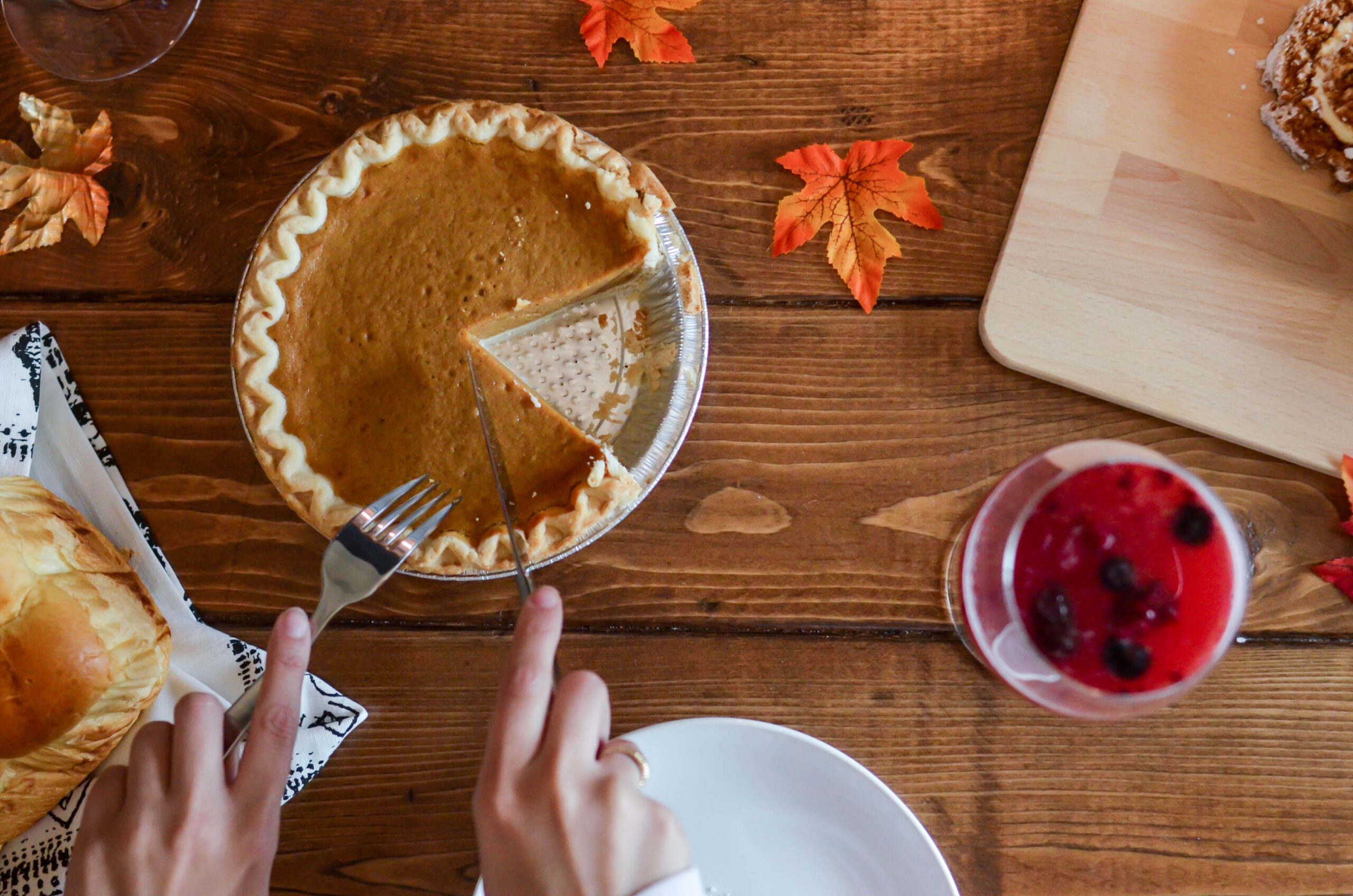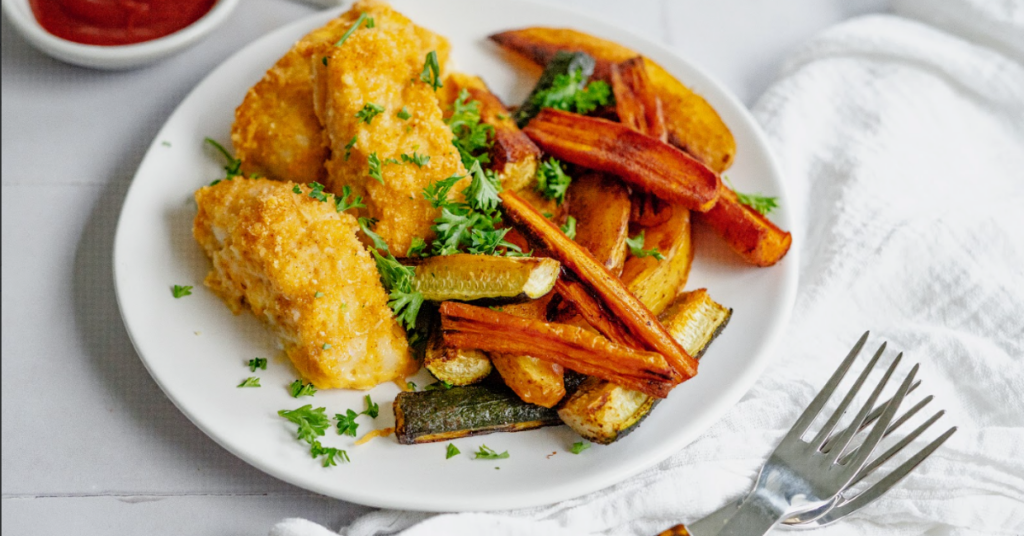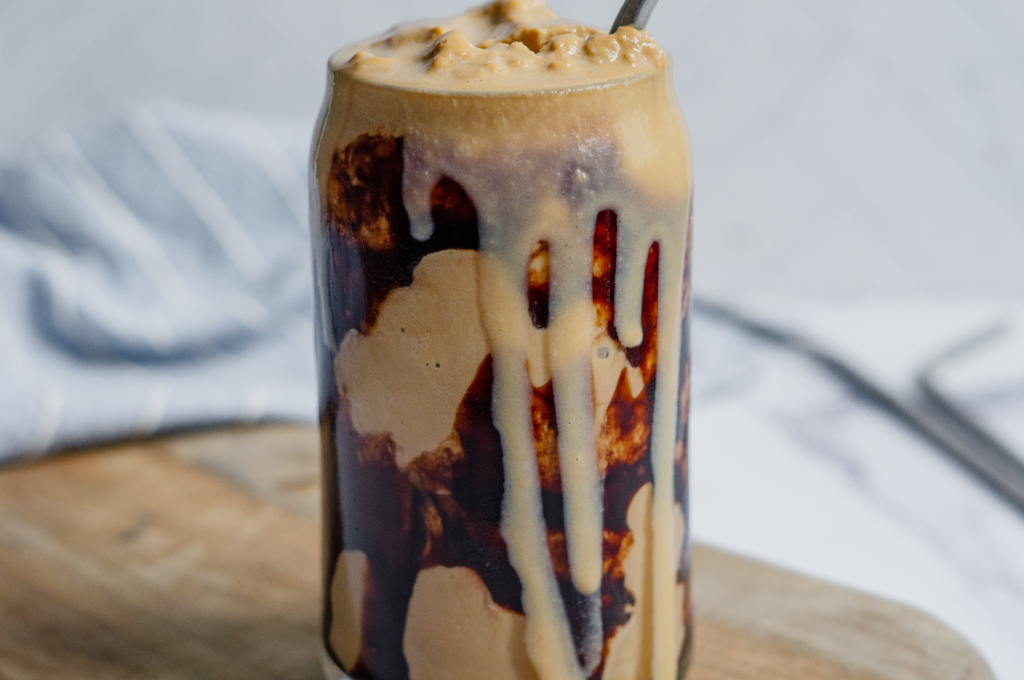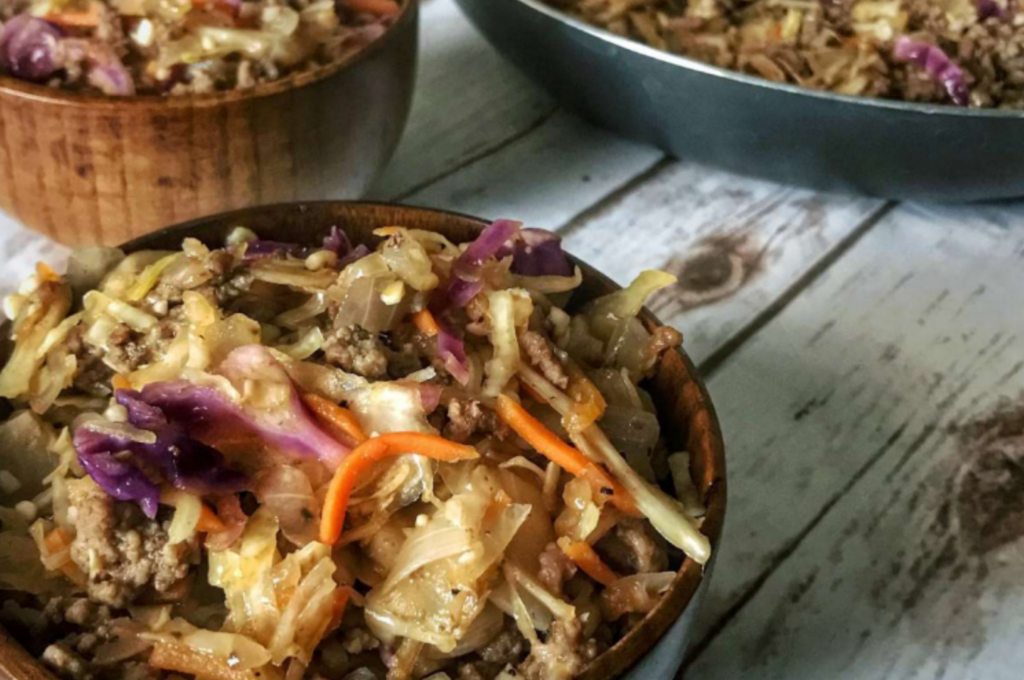Let’s set the scene: You’re scrolling on social media and start to hear a lot of confusing and contradictory messages from the health and fitness community. You find yourself bombarded with messages ranging from “Eat whatever you want over the holiday, YOLO!” or “You’re too extreme or obsessive if you’re trying to manage your weight over a holiday” to “Click on this recipe to make your favorite dish sugar-free and devoid of all joy.”
You get the idea.
Health behaviors are always on a spectrum, and for some reason, if you wade too far in one direction, you’ll be targeted as “too soft” or “hardo,” aka “too rigid,” if you subscribe to one or the other on a particular occasion. The reality is that we all likely need to subscribe to different angles or methods at different times. There’s a tool for each situation. There are times to be kinder or softer and times to push it and keep the pace.
Speaking as a dietitian, I strive to be inclusive and kind.
Speaking from our brand, Stronger U, we also strive to be inclusive and kind.
With both of those values at stake, you can see why I’d be nervous to write a piece that includes why we should care about holiday weight gain at risk of sounding too dogmatic or harsh when my typical message is not to stress, to enjoy the holidays, and to take care of our minds and bodies. The truth is, we CAN hold both of those things. We can respect our bodies and enjoy the holidays while also trying to live by way of our overarching values.
However, it would be unkind of me not to address this element many grapple with.
- If you’re someone who is noticing you may need to practice giving yourself MORE permission with what you eat, then I encourage you to try that.
- If you’re someone who notices you need to keep more of your health behaviors going during the holidays, I encourage you to hold those actions as the most important.
I’m a proud “soft-skilled” science clinician. I deeply respect and rely on data, but I also use a lot of connection and feelings in my work. While I may prefer the latter, I’m going to share some facts from the research that collectively suggest that holiday weight gain is a real phenomenon and how that might contribute to long-term weight gain.
Before we dive into the stats, please know this offers a way to think about what you might like to do during the holidays or on the other side of the holiday. Do you want to moderate more during the holidays to make the time after a little easier, or would you prefer to make more plans after the holidays? There’s no right or wrong way to go into this season; this is information for you to approach the holiday and actions thereafter.
While these statistics are observational, they offer some insight and conversation:
- 51% of annual weight gain happens during the holidays. (The other half of weight gained is commonly gained over vacation time periods.) (Roberts)
- December 22-29 is the time period with the highest weight gain. (Yanovski)
- ~1-1.5 lbs is the average holiday weight gain maintained and accrued year over year, resulting in long-term weight gain. (It’s important to note that 1-1.5 lbs weight gain is minor, and we don’t want the message to be for you to worry about such a small amount. This is why we educate Stronger U members on how dynamic weight is. The takeaway is that if you’re gaining, say, 2 lbs every holiday season over ten years, and that weight isn’t managed, it can result in 20 lbs gained over time.)
- Weight gain may happen slowly over time and will vary from individual to individual.
These findings highlight the importance of addressing holiday weight gain to prevent long-term weight gain. (Cooper)
Does this mean that everyone gains weight? No! And it also doesn’t say that gaining a pound over the holidays is hugely impactful. However, it does show us that this is a period of time to be aware of that can have an impact on your weight change over time. Rest assured that your year and how you live most of the time matter more to your weight and health outcomes than just the holiday timeframe.
So how do we give ourselves more permission for food joy during the holidays and also respect our values?
Here are some ideas to make the most of the holidays while still prioritizing health goals:
1. Define your North Star:
One of the first steps in making changes to your health behaviors is becoming aware of your current behaviors. After you are aware of what you are currently doing, you can then create a plan that defines what you’d like to change. One tool that can be helpful in prioritizing behavior change is to determine what values or actions in your life are important to you. Simply put, you need a North Star. We had an amazing guest, Karin Nordin, Phd on our Stronger U podcast (episode coming soon!), and she spoke about having a word or value for goal setting. Her word for the past year was “tidy” and the behaviors she strives for daily are in alignment with being tidy. I’d encourage all of us to take this framework and create a value/word that is either: 1. The same as it has been leading into the holidays -or- 2. A special one for the holidays. Creating a word or theme for the behaviors you want is a great place to start. If you’re curious what my word is, I’m considering the word “active” or “momentum” as these are both going to provide a way for me to keep the top things I need in my day to day that will help my behaviors. One note is that doesn’t mean I need to do the SAME thing each day for this word, but I do need to take actions that most align with it.
So how does this play a role in our holiday health management? If we work with this word/phrase, that doesn’t mean we’re not enjoying the cake or pie, but it does mean we’re consistently holding a mission to act in alignment with what we’ve identified as important to us. And I would bet that if we do this, we will also help mitigate the annual holiday weight gain and stress around what we’re doing.
2. Self Monitor your Behaviors:
Self-monitoring of target behaviors is one of the most helpful strategies for making a health behavior change. Research suggests that self-monitoring food intake and weight over the holidays can be helpful, particularly for people with current weight loss goals. For example, a study by Baker et al. found “only participants in the most consistent self-monitoring quartile averaged any weight loss over the 10 weeks of the study and during the holiday weeks.” (Baker)
Self-monitoring can mean a variety of things, but typically it’s some form of journaling, tracking, or pre-planning and reflection-based practice. Our Stronger U members are asked to track health behaviors daily and reflect on them weekly as a strategy to find areas of strengths and weaknesses themselves so that their coach can review and offer advice as well.
Self-monitoring will look different from person to person. This is why I always recommend “eyes on your own plate” when out with others or at a party. You don’t know whether someone has attended ten holiday parties and is now sick of cookies or charcuterie boards (who could ever get sick of those?!). Or, this could be someone’s favorite food, and they’re eating seconds and thirds. We will only know our own food story and food strategy. Stick to what you and your coach mapped out.
3. Use a Plate vs Picking:
One of the biggest challenges during the holidays is the way in which food is served. Hello, buffets and tables of food! One of the best ways to combat the draw to overeat at a buffet is to commit to one plate. Fill that plate up with all that you want, and then move AWAY from the table:
• Put your food on a plate at holiday gatherings vs. picking and grabbing without a true plate made
• Load up your plate with vegetables or crudités. Aim to have half your plate with vegetables or salad.
• Use your hands as tools: 1-2 palms of protein, 1-2 fists of carbs, and the rest filled in with vegetables can help build a filling and enjoyable plate! See the photos below for examples.
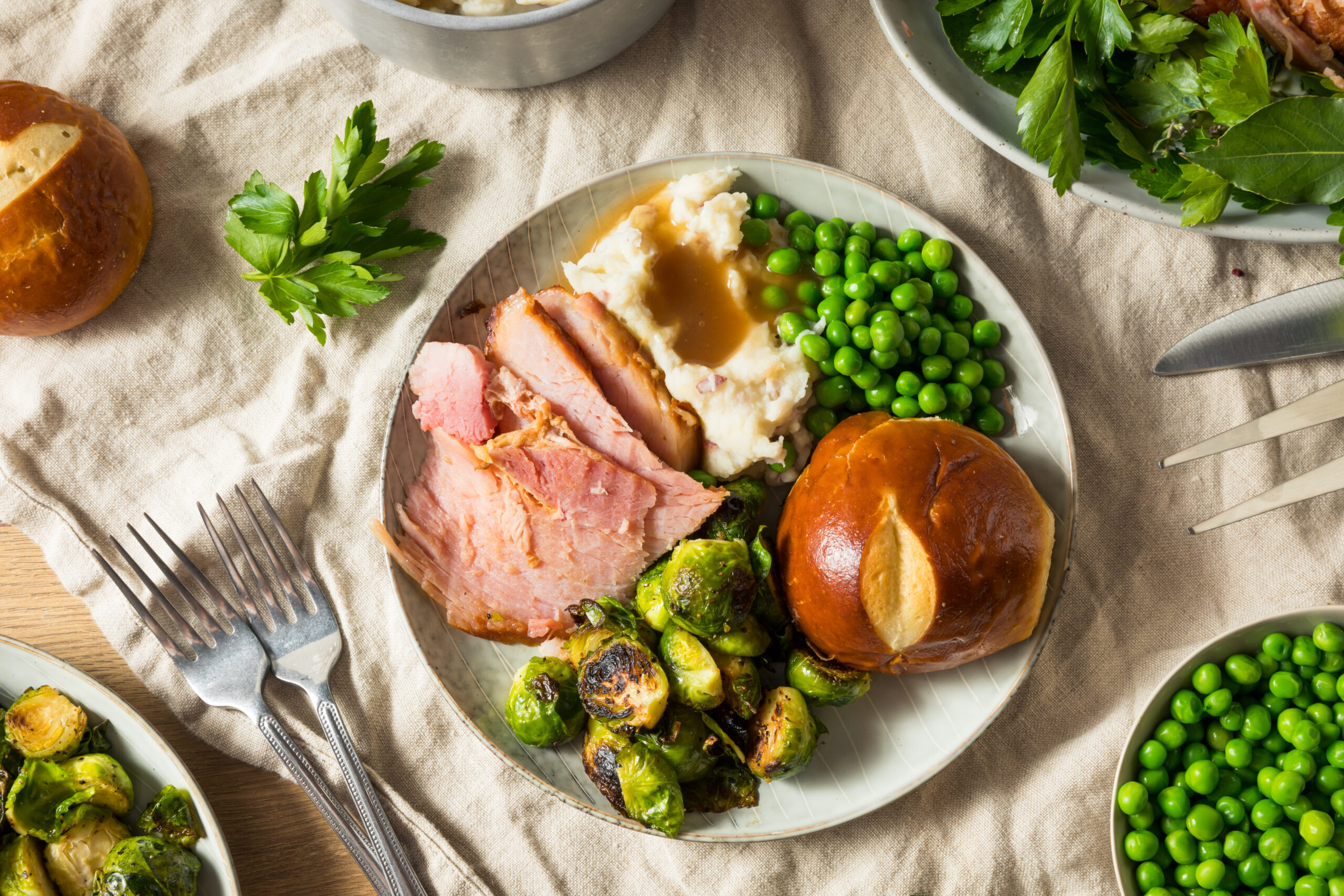
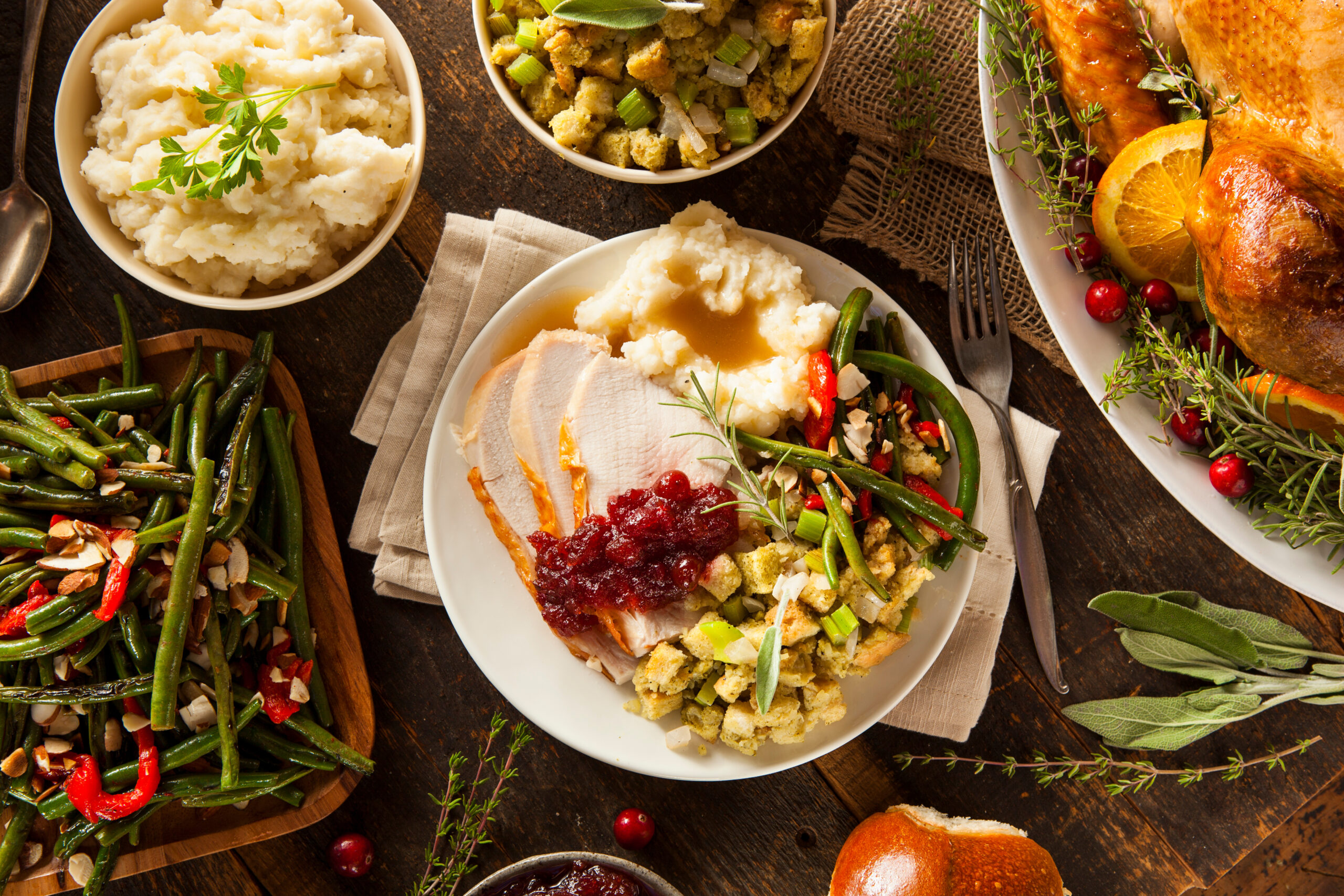
4. Party Pre-game:
Another common issue we come across with holiday eating can be solved by being mindful of your eating BEFORE arriving at an event. If you show up ravenous, it makes it really hard to make the best decisions! Here are two tips that will help you navigate your holiday social gatherings much more seamlessly.
- Don’t show up on an empty stomach to a party. Eat your normal meals and snacks throughout the day to nourish yourself adequately and prevent overeating while you enjoy the party and food.
- Set boundaries around alcohol because it can be easy to go overboard. Here are some reminders:
- Excessive alcohol can lead to
- More cravings for food: people tend to grab high-sugar and higher-fat foods after drinking alcohol
- Impaired decision-making: it’s a lot harder to say no to that second cookie after having a drink!
- Excessive alcohol can lead to
- Don’t forget that alcohol has calories, too!
- Even one drink impairs sleep
How can you set yourself up for success around alcohol?
1. Set a drink limit for yourself.
2. Create a plan around how you will alternate between spirits and non-alcoholic beverages.
3. Try a mocktail from the Stronger U Mocktail Guide in your member University!
5. Continue your Usual Routine:
A great way to stay on track is to… stay on track! Try to find a way to stick with most of your usual routines, even through the holidays.
Examples of this might be:
- Stick to your usual NEAT and Step Count
- Stick to your training program
- Hydration: drink your usual amount of water
- Maintain your daily meditation and current mindset work
6. Plan your calendar and create guidelines:
Look at your holiday months from a monthly, then a weekly, event view to help make a broader game plan for how you want to enjoy and manage your plans and social engagements. This will help you determine how to approach each individual social gathering.
Tip: Stronger U has holiday calendars to use in your member university area! This will help create guidelines based on your goals. For example:
Bring an appetizer or side dish that helps you feel good alongside the other options at the event.
Make a special beverage you can enjoy yourself and share with friends.
7. Practice Self-Compassion:
Self-compassion work is extremely helpful to see our health outcomes progress. Self compassion “is associated with greater personal initiative to make needed changes in one’s life. Because self-compassionate individuals do not berate themselves when they fail, they are more able to admit mistakes, modify unproductive behaviors and take on new challenges.” (Neff)
It can be challenging to practice self-compassion if we’re not taught what that looks like. Dr. Kristin Neff has a lot of research available in self-compassion, and according to Dr. Neff there are three components of self-compassion. These components offer a way to start incorporating this into your life, just by knowing and being aware of the definitions:
1. Self-kindness vs. self-judgment: Have kindness towards yourself outweigh judgments of yourself.
2. Common humanity vs. isolation: You’re not alone. There is a collective of people who want to enjoy the holiday and reach their goals. And we all recognize that this is challenging.
3. Mindfulness vs. over-identification: This means “that feelings are neither suppressed nor exaggerated.” (Neff) Acknowledge our emotions, both pleasant and unpleasant.
To the Stronger U community, and those who aren’t here yet, we wish you the happiest holiday season and New Year!
Here’s to a self-compassionate and successful U!
-Gianna

REFERENCES:
Roberts, S. B. (2009). Holiday Weight Gain: Fact or Fiction? In Nutrition Reviews (Vol. 58, Issue 12, pp. 378–379). Oxford University Press (OUP). https://doi.org/10.1111/j.1753-4887.2000.tb01839.x
Schoeller, D. A. (2014). The effect of holiday weight gain on body weight. In Physiology & Behavior (Vol. 134, pp. 66–69). Elsevier BV. https://doi.org/10.1016/j.physbeh.2014.03.018
Helander, E. E., Wansink, B., & Chieh, A. (2016). Weight Gain over the Holidays in Three Countries. In New England Journal of Medicine (Vol. 375, Issue 12, pp. 1200–1202). Massachusetts Medical Society. https://doi.org/10.1056/nejmc1602012
Baker, R. C., & Kirschenbaum, D. S. (1998). Weight control during the holidays: Highly consistent self-monitoring as a potentially useful coping mechanism. Health Psychology, 17(4), 367–370. doi:10.1037/0278-6133.17.4.367
Cooper, J. A., & Tokar, T. (2016). A prospective study on vacation weight gain in adults. In Physiology & Behavior (Vol. 156, pp. 43–47). Elsevier BV. https://doi.org/10.1016/j.physbeh.2015.12.028
Yanovski, J. A., Yanovski, S. Z., Sovik, K. N., Nguyen, T. T., O’Neil, P. M., & Sebring, N. G. (2000). A Prospective Study of Holiday Weight Gain. In New England Journal of Medicine (Vol. 342, Issue 12, pp. 861–867). Massachusetts Medical Society. https://doi.org/10.1056/nejm200003233421206
Olson, K., Coffino, J. A., Thomas, J. G., & Wing, R. R. (2020). Strategies to manage weight during the holiday season among US adults: A descriptive study from the National Weight Control Registry. In Obesity Science & Practice (Vol. 7, Issue 2, pp. 232–238). Wiley. https://doi.org/10.1002/osp4.470
Dr. Kristin Neff: https://self-compassion.org/the-three-elements-of-self-compassion-2/
Neff KD. The Role of Self-Compassion in Development: A Healthier Way to Relate to Oneself. Hum Dev. 2009 Jun;52(4):211-214. doi: 10.1159/000215071. PMID: 22479080; PMCID: PMC2790748.

